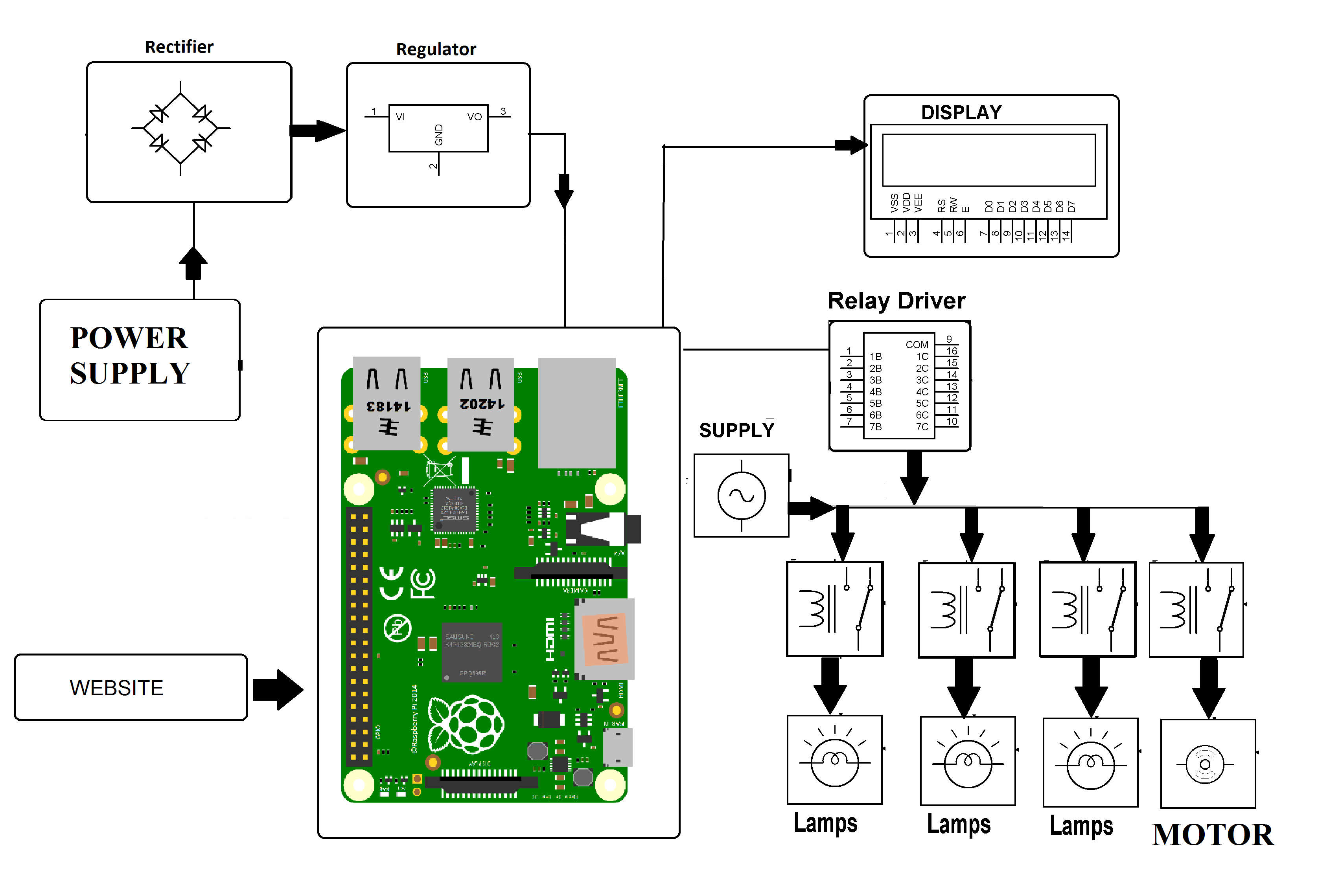Remote IoT Platform SSH Key Not Working Raspberry Pi: A Troubleshooting Guide
So, you’ve set up your Raspberry Pi for remote access using an IoT platform, but the SSH key isn’t working? Don’t panic—this is more common than you think. Whether you’re building a smart home system, automating industrial processes, or just experimenting with IoT, SSH key issues can throw a wrench in your plans. But guess what? We’ve got you covered. In this guide, we’ll walk you through everything you need to know to fix that pesky SSH key problem and get your Raspberry Pi up and running smoothly.
Remote IoT platforms are all about making life easier, right? They’re supposed to let you control your devices from anywhere in the world. But when the SSH key isn’t cooperating, it can feel like you’re stuck in a digital dead end. The good news is that most SSH key issues are fixable with a little troubleshooting and some insider tips. This article will break down the problem step by step so you can get back on track.
Whether you’re a seasoned IoT enthusiast or just starting out with Raspberry Pi, this guide is designed to help you navigate the tricky world of SSH keys. From common causes of SSH key failures to advanced troubleshooting techniques, we’ve got all the answers you need. So grab a coffee, sit back, and let’s dive in!
- Mckinley Richardson Age The Rising Star Unveiled
- Alyx Star Age The Inside Scoop On The Rising Star Everyones Talking About
What is an SSH Key and Why Does It Matter for Raspberry Pi?
Let’s start with the basics. SSH stands for Secure Shell, and it’s basically a protocol that allows you to securely connect to your Raspberry Pi from another computer. Think of it as a digital handshake that ensures no one else can access your device without permission. The SSH key is like a special password that grants access to your Pi, but unlike traditional passwords, it’s way more secure because it uses encryption.
When you’re working with a remote IoT platform, having a functional SSH key is crucial. Without it, you won’t be able to remotely manage your Raspberry Pi or interact with your IoT devices. If the SSH key isn’t working, it’s like trying to open a locked door without a key. Not ideal, right?
Why SSH Keys Are Better Than Passwords
Here’s the thing: SSH keys are way better than regular passwords for several reasons:
- Jamelizzzz Xxx Erome A Comprehensive Exploration Into Her Digital Fame
- Alice Roseblum Onlyfans Rising Star Content And Secrets You Need To Know
- They’re more secure because they use complex encryption algorithms.
- They eliminate the risk of brute-force attacks, where hackers try to guess your password.
- Once set up, they make logging in faster and more convenient.
- They’re especially useful for automating tasks, like running scripts on your Raspberry Pi.
So if you’re dealing with an SSH key that’s not working, it’s worth fixing it properly instead of switching back to passwords. Trust us, your security will thank you later.
Common Reasons Why SSH Keys Stop Working
Before we jump into solutions, it’s important to understand why SSH keys might stop working in the first place. There are several common culprits, and pinpointing the cause is the first step toward fixing the issue. Let’s take a look at the most frequent offenders:
1. Misconfigured SSH Key Permissions
One of the biggest reasons SSH keys fail is because of incorrect file permissions. The SSH key files (.ssh/authorized_keys and .ssh/id_rsa) need to have the right permissions set, or the SSH server won’t recognize them. If the permissions are too open, the server will reject the key for security reasons.
2. Incorrect SSH Configuration
Your Raspberry Pi’s SSH configuration file (usually located at /etc/ssh/sshd_config) needs to be set up correctly. If certain settings are disabled or misconfigured, the SSH key won’t work properly. For example, if the PubkeyAuthentication option is set to "no," the server won’t accept SSH keys at all.
3. Network Issues
Sometimes the problem isn’t with the SSH key itself but with the network. Firewalls, routers, or even DNS issues can prevent your connection from being established. If your Raspberry Pi can’t communicate with the remote server, the SSH key won’t work no matter how well-configured it is.
4. Outdated Software
Another common issue is outdated software. If your Raspberry Pi’s SSH server or client software is old, it might not support modern encryption protocols. This can cause compatibility issues with newer SSH keys.
Step-by-Step Troubleshooting Guide
Now that we’ve identified the most common causes of SSH key failures, let’s dive into the solutions. Follow these steps one by one to troubleshoot and fix the issue:
Step 1: Check Your SSH Key Permissions
First things first, make sure your SSH key files have the correct permissions. Here’s how you can do it:
- Log in to your Raspberry Pi using a password or another method.
- Run the following commands to set the correct permissions:
chmod 700 ~/.ssh
chmod 600 ~/.ssh/authorized_keys
These commands ensure that only the owner of the files can read or write to them, which is a security requirement for SSH.
Step 2: Verify SSH Configuration
Next, check your SSH configuration file to make sure everything is set up correctly. Open the file with a text editor:
sudo nano /etc/ssh/sshd_config
Look for the following settings and make sure they’re enabled:
- PubkeyAuthentication yes
- AuthorizedKeysFile .ssh/authorized_keys
- PasswordAuthentication no (optional, but recommended for security)
Once you’ve made the changes, restart the SSH service:
sudo service ssh restart
Step 3: Test the Connection
After making the changes, test the connection to see if the SSH key is working. Try logging in from your remote computer:
ssh username@raspberrypi
If it still doesn’t work, move on to the next step.
Advanced Troubleshooting Techniques
If the basic troubleshooting steps don’t solve the issue, it’s time to dig deeper. Here are some advanced techniques to help you get to the bottom of the problem:
1. Check SSH Logs
Your Raspberry Pi keeps logs of SSH activity, which can provide valuable clues about what’s going wrong. Check the logs using the following command:
sudo journalctl -u ssh
Look for any error messages related to SSH key authentication. These logs might reveal issues like incorrect key formats or mismatches between the public and private keys.
2. Regenerate the SSH Key Pair
If the original SSH key is corrupted or incompatible, you might need to regenerate a new key pair. Here’s how:
- On your remote computer, run the following command:
ssh-keygen -t rsa -b 4096
Follow the prompts to create a new key pair. Then, copy the public key to your Raspberry Pi:
ssh-copy-id username@raspberrypi
Test the connection again to see if the new key works.
3. Update SSH Software
Make sure your Raspberry Pi’s SSH software is up to date. Run the following commands to update:
sudo apt update
sudo apt upgrade
This will ensure you have the latest version of the SSH server and client software, which might resolve compatibility issues.
Best Practices for Secure SSH Connections
Once you’ve fixed the SSH key issue, it’s important to follow best practices to keep your Raspberry Pi secure. Here are some tips:
- Always use SSH keys instead of passwords for authentication.
- Disable root login to prevent unauthorized access.
- Set up a firewall to restrict incoming connections.
- Regularly update your Raspberry Pi’s software to patch security vulnerabilities.
By following these practices, you’ll significantly reduce the risk of security breaches and ensure your IoT platform runs smoothly.
Data and Statistics: Why SSH Keys Are Essential
According to a recent study, over 60% of cyberattacks on IoT devices are caused by weak or stolen credentials. SSH keys provide a much stronger layer of security compared to traditional passwords, making them an essential tool for anyone working with IoT platforms. In fact, organizations that use SSH keys for authentication report a 75% reduction in unauthorized access attempts.
These numbers highlight the importance of using SSH keys properly and troubleshooting issues promptly. By securing your Raspberry Pi with a functional SSH key, you’re not only protecting your own data but also contributing to the overall security of the IoT ecosystem.
Conclusion: Fix That SSH Key and Take Control
So there you have it—a comprehensive guide to fixing SSH key issues on your Raspberry Pi. Whether the problem was misconfigured permissions, outdated software, or network issues, the solutions we’ve outlined should help you get back on track. Remember, securing your IoT platform is crucial, and SSH keys are one of the best tools at your disposal.
We encourage you to share this article with your fellow IoT enthusiasts and leave a comment below if you have any questions or additional tips. And don’t forget to check out our other guides for more insights into Raspberry Pi and IoT development. Stay safe out there, and happy troubleshooting!
Table of Contents
- Remote IoT Platform SSH Key Not Working Raspberry Pi: A Troubleshooting Guide
- What is an SSH Key and Why Does It Matter for Raspberry Pi?
- Why SSH Keys Are Better Than Passwords
- Common Reasons Why SSH Keys Stop Working
- Misconfigured SSH Key Permissions
- Incorrect SSH Configuration
- Network Issues
- Outdated Software
- Step-by-Step Troubleshooting Guide
- Step 1: Check Your SSH Key Permissions
- Step 2: Verify SSH Configuration
- Step 3: Test the Connection
- Advanced Troubleshooting Techniques
- Check SSH Logs
- Regenerate the SSH Key Pair
- Update SSH Software
- Best Practices for Secure SSH Connections
- Data and Statistics: Why SSH Keys Are Essential
- Conclusion: Fix That SSH Key and Take Control



Detail Author:
- Name : Jazmin Kautzer
- Username : katlyn.gaylord
- Email : nprice@gmail.com
- Birthdate : 1991-08-22
- Address : 3657 Metz Track Suite 272 North Doug, WI 56711
- Phone : (480) 499-2340
- Company : Ullrich-Deckow
- Job : Armored Assault Vehicle Crew Member
- Bio : Similique dignissimos alias est veritatis recusandae tempora. Nihil non culpa a voluptatibus repudiandae corporis ipsam. Nesciunt rerum ducimus esse nisi voluptas officiis.
Socials
tiktok:
- url : https://tiktok.com/@franciscorutherford
- username : franciscorutherford
- bio : Aut temporibus ipsa explicabo dolor et.
- followers : 1046
- following : 2443
facebook:
- url : https://facebook.com/franciscorutherford
- username : franciscorutherford
- bio : Sit tempore quasi dolorem officia quia.
- followers : 4376
- following : 2464
twitter:
- url : https://twitter.com/francisco.rutherford
- username : francisco.rutherford
- bio : Dicta quia harum aut quisquam accusamus maxime. Pariatur eveniet fugit laudantium incidunt consequuntur. Quo voluptas porro iure qui quia.
- followers : 5293
- following : 2889
linkedin:
- url : https://linkedin.com/in/francisco1438
- username : francisco1438
- bio : Aliquam alias vitae in rerum debitis sit.
- followers : 4532
- following : 590
instagram:
- url : https://instagram.com/frutherford
- username : frutherford
- bio : Quasi ut facilis ipsum eos non quo. Dolore rerum ea ea dignissimos eos.
- followers : 3531
- following : 1462